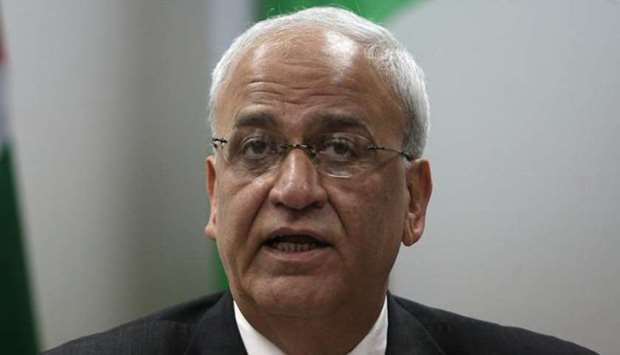A senior Palestinian official on Tuesday said silence in US President Donald Trump's administration over settlement growth and its failure to support the two-state solution encouraged "apartheid" Israeli policies.
The criticism by chief negotiator Saeb Erekat came in a statement after the Palestinians had previously been careful not to antagonise the new US leader since his inauguration in January.
Peace talks between Israel and the Palestinians have been frozen since 2014.
"The fact the US administration did not declare the final goal of the peace process is to achieve two states on the basis of the 1967 borders, and its silence regarding the intensification of Israeli colonial settlement activities, are interpreted by the Israeli government as an opportunity to destroy the two-state solution and replace it with one state with two systems," Erekat said.
"That is what the Israeli government is doing on the ground through its policies," he said, adding that such a system was tantamount to "apartheid".
Trump's administration, that includes his son-in-law Jared Kushner, has sought to build trust for a new round of direct Israeli-Palestinian peace negotiations.
Erekat, who is also the secretary general of the Palestine Liberation Organization, said the American administration's perceived silence was an "obstacle" to talks.
Settlements in the West Bank and east Jerusalem are among the most controversial issues in the Israeli-Palestinian conflict.
Israel occupied the areas in 1967 in a move never recognised by the international community, and more than 600,000 Israelis now live in settlements.
In December, the United Nations Security Council declared all such settlements to be illegal after outgoing president Barack Obama decided not to veto a resolution.
Since Trump came to power, however, Washington has remained largely quiet as Israel has announced thousands of new homes in settlements.
Trump has also moved away from decades of US support for the two-state solution -- the establishment of an independent Palestinian state alongside Israel -- saying in February that he was happy with either a one-state or two-state solution if the parties favoured it.
US negotiators have not publicly backed an independent Palestinian state in statements after meetings with the two sides.

Saeb Erekat
